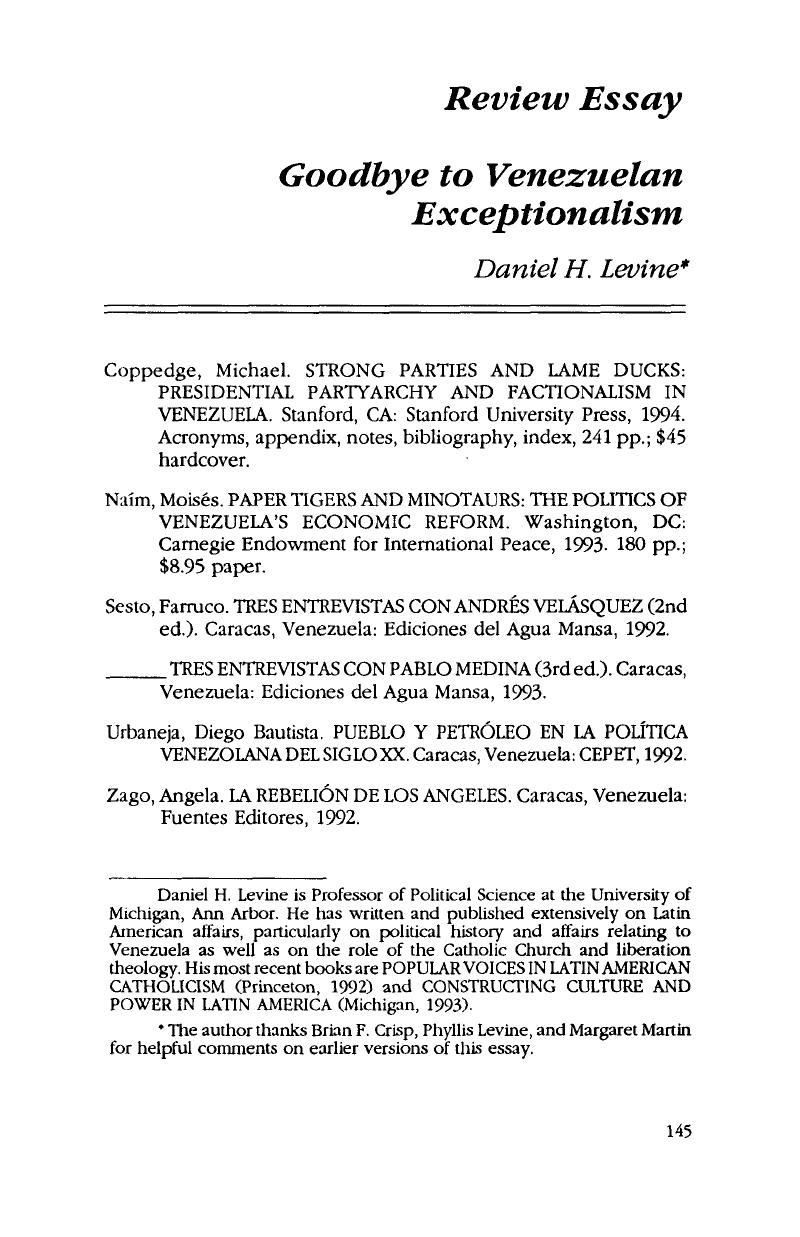Crossref Citations
This article has been cited by the following publications. This list is generated based on data provided by Crossref.
McCoy, Jennifer L.
and
Smith, William C.
1995.
Democratic Disequilibrium in Venezuela.
Journal of Interamerican Studies and World Affairs,
Vol. 37,
Issue. 2,
p.
113.
Ellner, Steve
1997.
Recent Venezuelan Political Studies: A Return to Third World Realities.
Latin American Research Review,
Vol. 32,
Issue. 2,
p.
201.
Romero, Aníbal
1997.
Rearranging the Deck Chairs on the Titanic: The Agony of Democracy in Venezuela.
Latin American Research Review,
Vol. 32,
Issue. 1,
p.
7.
Crisp, Brian F.
and
Levine, Daniel H.
1998.
Democratizing the Democracy? Crisis and Reform in Venezuela.
Journal of Interamerican Studies and World Affairs,
Vol. 40,
Issue. 2,
p.
27.
Weyland, Kurt
1998.
Peasants or Bankers in Venezuela? Presidential Popularity and Economic Reform Approval, 1989-1993.
Political Research Quarterly,
Vol. 51,
Issue. 2,
p.
341.
Ellner, Steve
and
Salas, Miguel Tinker
2005.
Introduction.
Latin American Perspectives,
Vol. 32,
Issue. 2,
p.
5.
Parker, Dick
2005.
Chávez and the Search for an Alternative to Neoliberalism.
Latin American Perspectives,
Vol. 32,
Issue. 2,
p.
39.
Levine, Daniel H.
2006.
Civil Society and Democracy in Latin America.
p.
169.
Jiménez, Alfredo Ramos
2007.
Venezuela: las elecciones presidenciales de 2006. Des elections pas comme les autres.
Nuevo mundo mundos nuevos,
Mantilla, Luis Felipe
2012.
Scripture, structure and the formation of Catholic parties: The case of Venezuela.
Party Politics,
Vol. 18,
Issue. 3,
p.
369.
Andréani, Fabrice
and
Laplace, Lucie
2018.
Quand la (contre-)révolution vote avec ses pieds : penser l’explosion migratoire vénézuélienne.
Hérodote,
Vol. N° 171,
Issue. 4,
p.
29.
Latouche, Miguel Angel
2024.
Cuba in the Multipolar World Order.
p.
97.



